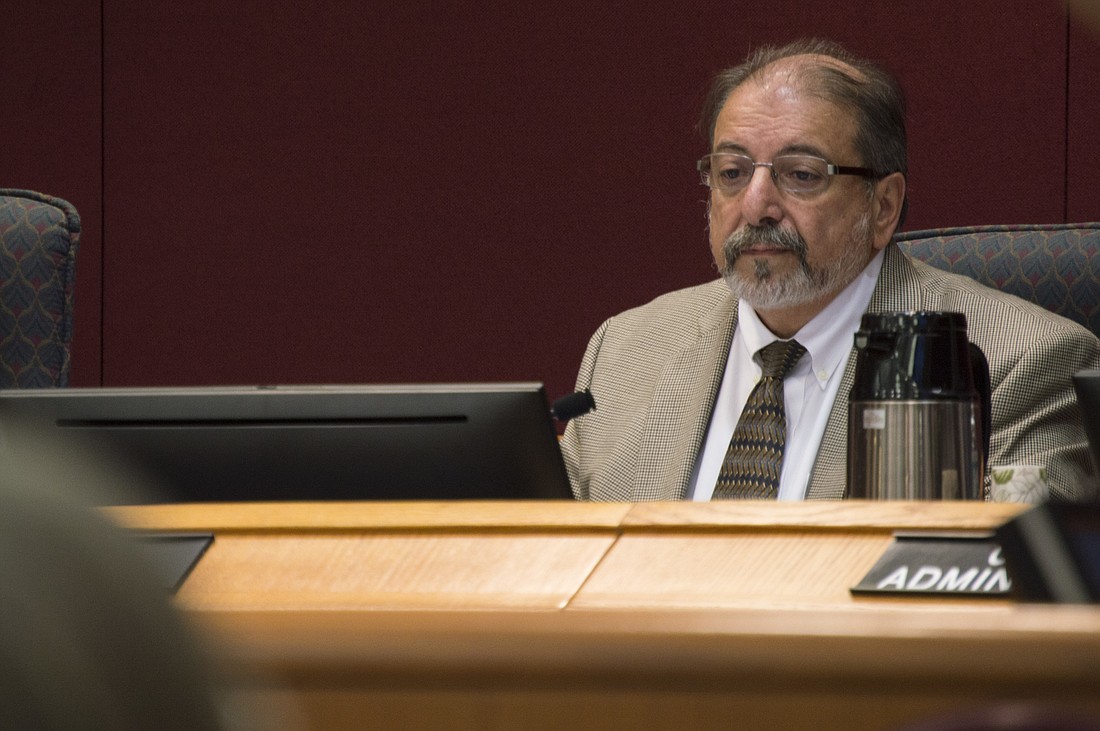- July 17, 2025
-
-
Loading

Loading

Sarasota County leaders this year are hoping to resurrect a public referendum that would create a mental health special taxing district to help address treatment gaps throughout the county.
Commissioners first began discussing a potential special taxing district to support mental health organizations in 2019 after Commissioner Mike Moran brought forth the idea.
They were poised to add the issue to the November 2020 ballot but decided against it when financial uncertainties over COVID-19 arose in April.
“You’d be asking existing programs to take a hit while instituting new programs and I don’t think that’s a great position to be in,” Commissioner Nancy Detert said at the time. “If we delay it a year, I think people would understand.”
Now, they hope to bring the idea back in 2021.
Moran said local health organizations have expressed a belief that their missions would be enhanced with reliable funding and he sees the need in the community.
“Organizations could have the best plan in the world, but they don’t have the money to execute,” Moran said. “With this, you’ve taken a huge variable away.”
During the commissioner’s planning retreat in December, local leaders and mental health experts implored commissioners to bring discussions back. In early 2021 meetings, Commissioner Al Maio requested a status report on the district.
County Administrator Jonathan Lewis said staff plans to have a report ready to present to the board in March and would then seek direction from the board in April.
Among the leaders hoping to see a revival is John Annis, the senior vice president for collaboration and impact of the Charles & Margery Barancik Foundation.
“I think this has been proven that there is such a need,” Annis said. “The pandemic did not make mental health any better. In fact, every piece of research I’ve read has talked about how bad it has been for our mental health so this is the right time to make this investment.”
Although many commissioners support the idea of dedicating money to various programs, some residents and members of the business community are hesitant to tie the tax district's revenue to property taxes. At this point in discussions, it is unclear how much of an increase in annual taxes residents can expect.
Members of pro-business groups, such as Christine Robinson, the executive director of the Argus Foundation, have said that although they support the county prioritizing mental health, it should not create a separate taxing district to do so.
“If you intend to raise taxes, it is understandable why a taxing district will be considered and you should let the public know that up front,” Robinson said at the board retreat. “If you intend to just move the mental health money you are spending now to the taxing district, it is a mistake that could have terrible consequences for mental health.”
The county last year sent out a survey to residents and stakeholders to gauge their opinion of a mental health district.
Of the 1,663 respondents, 67% said they knew someone in need of mental health services. Around 78% of respondents said they’d support a degree of tax increase, ranging from $50 to $200 annually.
Although most residents are in favor of the program, it is still unclear what the priority of the funding will be. Commissioner Nancy Detert said she’d like to see the program focus on mental health services for juveniles.
A mental health scan funded by the Barancik Foundation and Gulf Coast Community Foundation and conducted by University of South Florida in 2018 found there are more than 10,000 untreated youth countywide, which costs the county $86 million annually.
“There’s a scarcity there,” Detert said.
Annis said commissioners could choose to divvy up the funds in a variety of ways. They could have the Human Services and Advisory Council decide how to split the funds, they could choose a priority for the year and dedicate a percentage to a corresponding organization or they could create a subcommittee of experts to determine what the county’s biggest issues are.
No matter what model the county chooses to adopt, Annis said he hopes commissioners agree on one soon.
“We’ve pushed off something we should have started working on 10 years ago,” Annis said. “A long time ago we should have started addressing this issue because it’s so serious. Any more time that we delay, it’s just not a positive thing.”